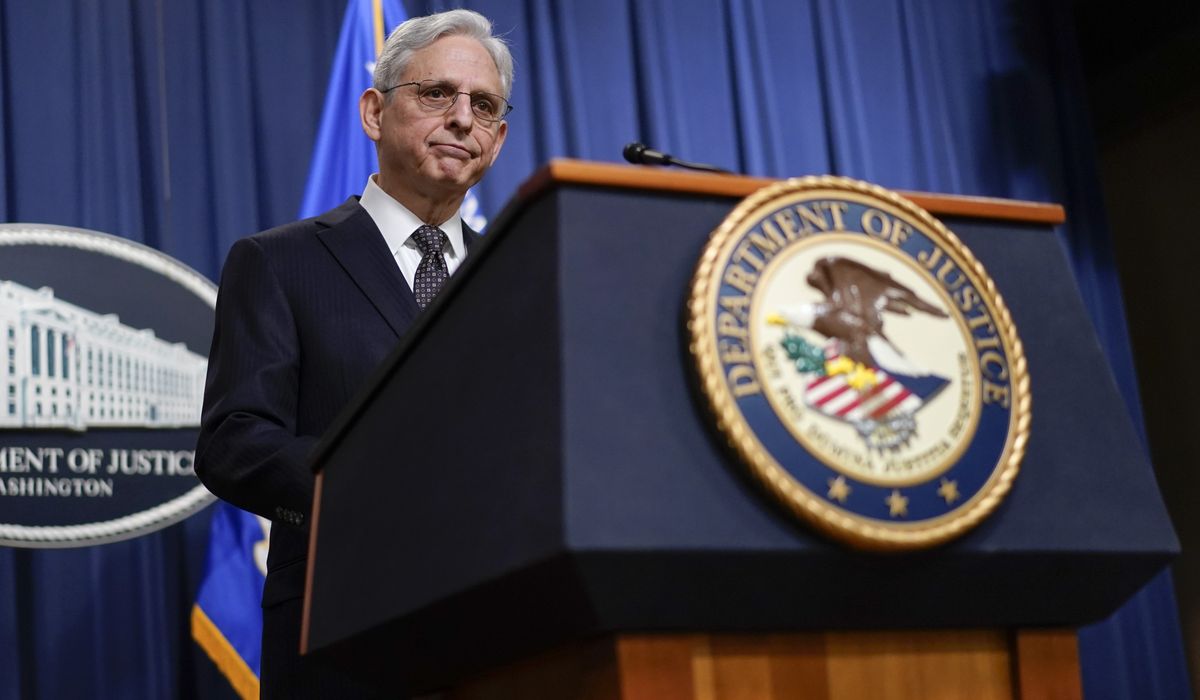


A group of red states and advocates from the firearms industry have sued over the Biden administration’s move to ban pistol stabilizing braces, arguing it runs afoul of federal law.
The federal lawsuit filed in North Dakota alleges Attorney General Merrick Garland and the Bureau of Alcohol, Tobacco, Firearms and Explosives inexplicably changed their views on stabilizing braces after more than a decade of saying the devices don’t alter the classification of a pistol.
ATF and the Justice Department are currently implementing a rule that would characterize any pistol with a stabilizing brace as subject to the National Firearms Act. The change would require every owner of a stabilizing brace to pay a $200 fee and submit their name and other identifying information to the Justice Department.
A stabilizing brace is a device attached to a pistol to help the shooter secure his or her arm.
The lawsuit claims the change would call for the “destruction or forfeiture of over 750,000 firearms and will cost the private sector somewhere between two and five billion dollars.”
“Let’s call this what it is: an effort to undermine Americans’ Second Amendment rights,” said West Virginia Attorney General Patrick Morrisey, who joined 24 other states in the lawsuit. “This is an egregious final rule turning millions of common firearms accessories into ‘short barreled rifles.’ This is a completely nonsensical regulation.”
“This is part of the continued attack by the Biden administration against lawful gun owners,” he added.
The plaintiffs in the lawsuit include North Dakota, Alaska, Alabama, Florida, Arkansas, Idaho, Georgia, Indiana, Kansas, Iowa, Kentucky, Mississippi, Louisiana, Montana, Missouri, New Hampshire, Nebraska, South Dakota, Oklahoma, South Carolina, Tennessee, Virginia, Utah and Wyoming.
Also joining the lawsuit is the Firearms Regulatory Accountability Coalition, a nonprofit firearms trade group, and SB Tactical, a limited liability company manufacturing stabilizing braces.
The Justice Department did not respond to a request for comment.
• Alex Swoyer can be reached at aswoyer@washingtontimes.com.
